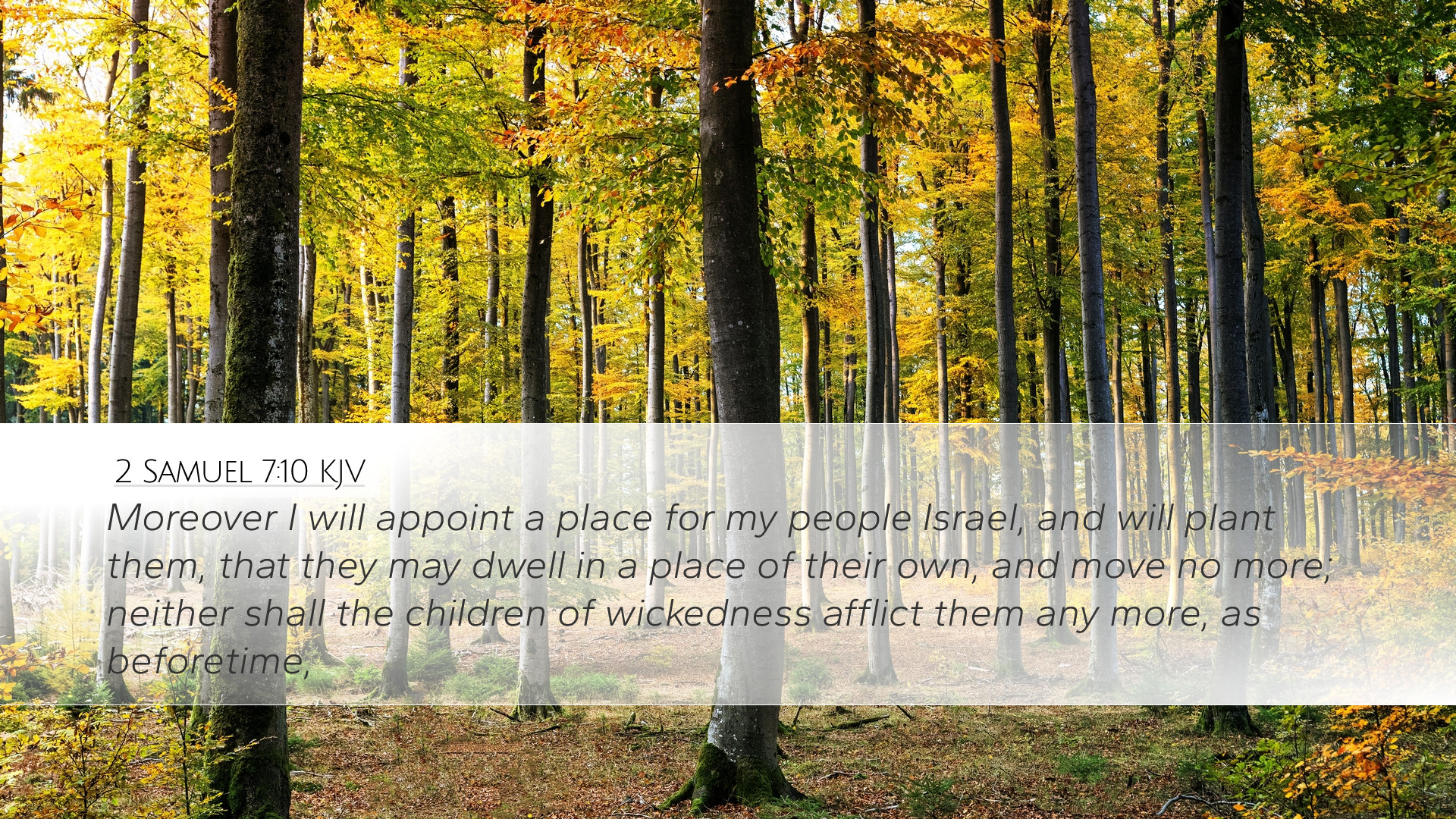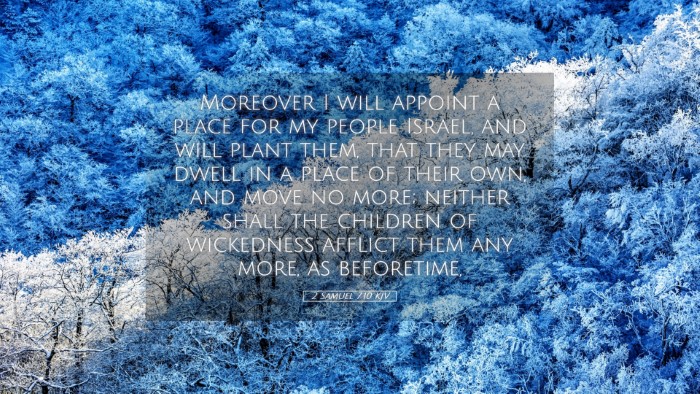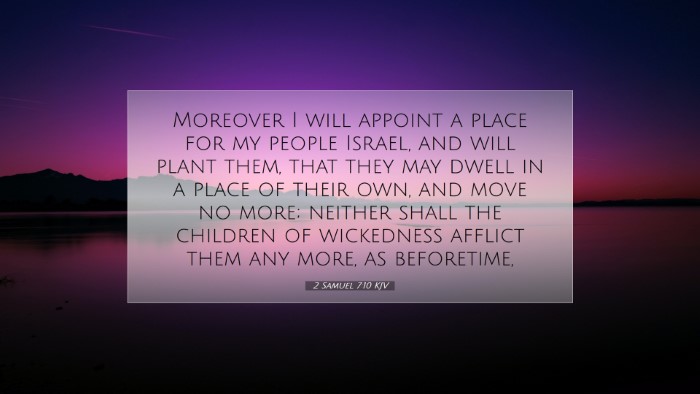Commentary on 2 Samuel 7:10
2 Samuel 7:10 states: "And I will appoint a place for my people Israel and will plant them, that they may dwell in a place of their own and be moved no more". This passage is rich in theological significance and speaks to God’s covenantal promises with His people. Below is a synthesis of insights from esteemed public domain commentaries.
Contextual Background
This verse is situated within a larger narrative where David desires to build a house for the Lord. God responds through the prophet Nathan, revealing His intentions not only regarding David but also regarding His people, Israel. David has unified the nation and prepared a place of safety, but the LORD indicates that He is the one who will establish His people securely.
Theological Insights
Several key theological themes emerge from 2 Samuel 7:10:
- Covenantal Promise: This verse reflects God’s covenant loyalty. He is making a promise that goes beyond David's immediate desires. As Matthew Henry notes, God "takes care of His people in the world," ensuring that they are not uprooted.
- Security and Stability: The phrase "dwell in a place of their own" indicates a desire for permanence. Adam Clarke emphasizes that this is not merely about physical land but represents spiritual stability and peace for Israel under God’s protection.
- Divine Sovereignty: God's initiative in establishing Israel underscores His sovereignty. Albert Barnes remarks that it is God's power that grants possession and security, contrasting human efforts with divine fulfillment.
God’s Provision for Israel
In this verse, God promises to appoint a place for His people. This is significant as it indicates:
- A Designated Homeland: Historically, Israel faced many upheavals; however, God provides a specific land where they can settle, illustrating His intentionality in caring for them.
- Spiritual Reflection: The land represents more than geography; it symbolizes the presence of God amidst His people. It is a place for worship and community formation within His covenantal framework.
Historical Fulfillment
Matthew Henry observes that this promise sees partial fulfillment in the era of Solomon, who would build the temple, yet it also points to a more profound fulfillment in Jesus Christ, the true King and Redeemer. Clarke reinforces this, suggesting that the ultimate establishment of God’s people occurs in the New Testament through Christ, where believers become the temple of the Holy Spirit.
Reflections for Modern Believers
The implications of God’s promise in this verse resonate deeply for contemporary Christians:
- Community of Faith: Just as God provided a dwelling for Israel, He calls believers today to find their home in Christ and within the church, reinforcing the importance of community.
- Assurance in God’s Protection: The promise of not being "moved no more" serves as a powerful reminder of God’s security and faithfulness amidst life’s uncertainties.
- Hope in the Future: This passage invites believers to look forward to the ultimate fulfillment of God’s promises in the eschatological hope, where we will dwell with God forever (Revelation 21:3).
Conclusion
2 Samuel 7:10 encapsulates God's enduring commitment to His people, securing their place and identity as His own. As pastors, students, theologians, and scholars engage with this profound promise, it invites them to explore themes of covenant, divine faithfulness, and the anticipation of future glory. In understanding this passage, believers are renewed in their sense of belonging and purpose within God's redemptive plan.


